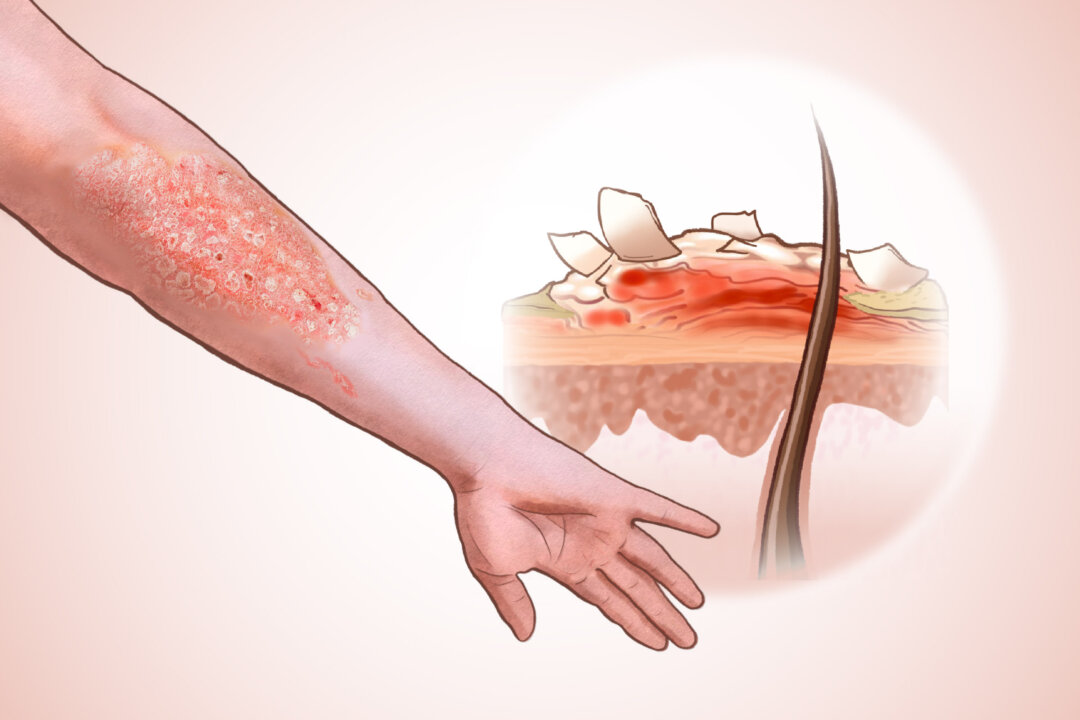Psoriasis is recognized as the second most common autoimmune condition in the United States, affecting millions of individuals. This complex disorder involves the immune system mistakenly attacking healthy skin cells, leading to the development of thick, scaly patches on the skin. These patches often manifest on areas such as the lower back, elbows, knees, or scalp, significantly impacting the quality of life for those affected. Although there is currently no cure, various treatments and lifestyle modifications can help manage the symptoms effectively.
Understanding Psoriasis and Its Impact
Psoriasis is not merely a cosmetic issue; it is a chronic autoimmune condition with a genetic basis. The immune system operates like an overzealous security system, triggering inflammatory responses that result in the rapid growth of skin cells. This accelerated growth leads to the formation of plaques, which can be itchy and painful. According to the National Psoriasis Foundation, around 8 million people in the United States live with this condition, highlighting the urgent need for effective management strategies.
Living with psoriasis can be challenging, as the visible symptoms often lead to social stigmatization and emotional distress. Many individuals experience a profound impact on their mental health, resulting in anxiety and depression. Therefore, understanding this condition and exploring effective lifestyle approaches is crucial for those affected.
Five Lifestyle Approaches to Manage Psoriasis
While medical treatments such as topical therapies, phototherapy, and systemic medications are essential, certain lifestyle changes can significantly improve the management of psoriasis symptoms. Here are five approaches that health experts recommend:
1. **Healthy Diet**: Nutrition plays a vital role in managing psoriasis. A diet rich in fruits, vegetables, whole grains, and healthy fats can help reduce inflammation. Foods high in omega-3 fatty acids, such as fatty fish, have been shown to benefit skin health. Limiting processed foods, sugars, and alcohol can also contribute to symptom improvement.
2. **Regular Exercise**: Engaging in regular physical activity can enhance overall health and aid in weight management, an important factor for individuals with psoriasis. Exercise helps reduce inflammation and stress, both of which can trigger flare-ups. Activities such as walking, swimming, and yoga are particularly beneficial.
3. **Stress Management**: Stress is a known trigger for psoriasis flares. Implementing stress-reduction techniques such as mindfulness, meditation, and deep-breathing exercises can help manage symptoms. Finding time for relaxation and hobbies can also provide emotional relief.
4. **Moisturizing**: Keeping the skin hydrated is essential for individuals with psoriasis. Regularly using moisturizers can help alleviate dryness and reduce the severity of flare-ups. Health experts recommend applying thick creams and ointments, especially after bathing or showering.
5. **Avoiding Triggers**: Identifying and avoiding personal triggers is crucial for managing psoriasis. Common triggers include smoking, excessive alcohol consumption, and certain medications. Keeping a symptom diary can help individuals pinpoint specific triggers and adjust their lifestyle accordingly.
Although psoriasis is a lifelong condition, these lifestyle changes can empower individuals to manage their symptoms more effectively. With the right combination of medical treatment and personal care, many people with psoriasis can lead fulfilling and active lives.
As research continues to evolve, awareness about psoriasis is essential in fostering understanding and support for those affected. By implementing these strategies, individuals can take proactive steps toward managing their condition and improving their overall well-being.


































































